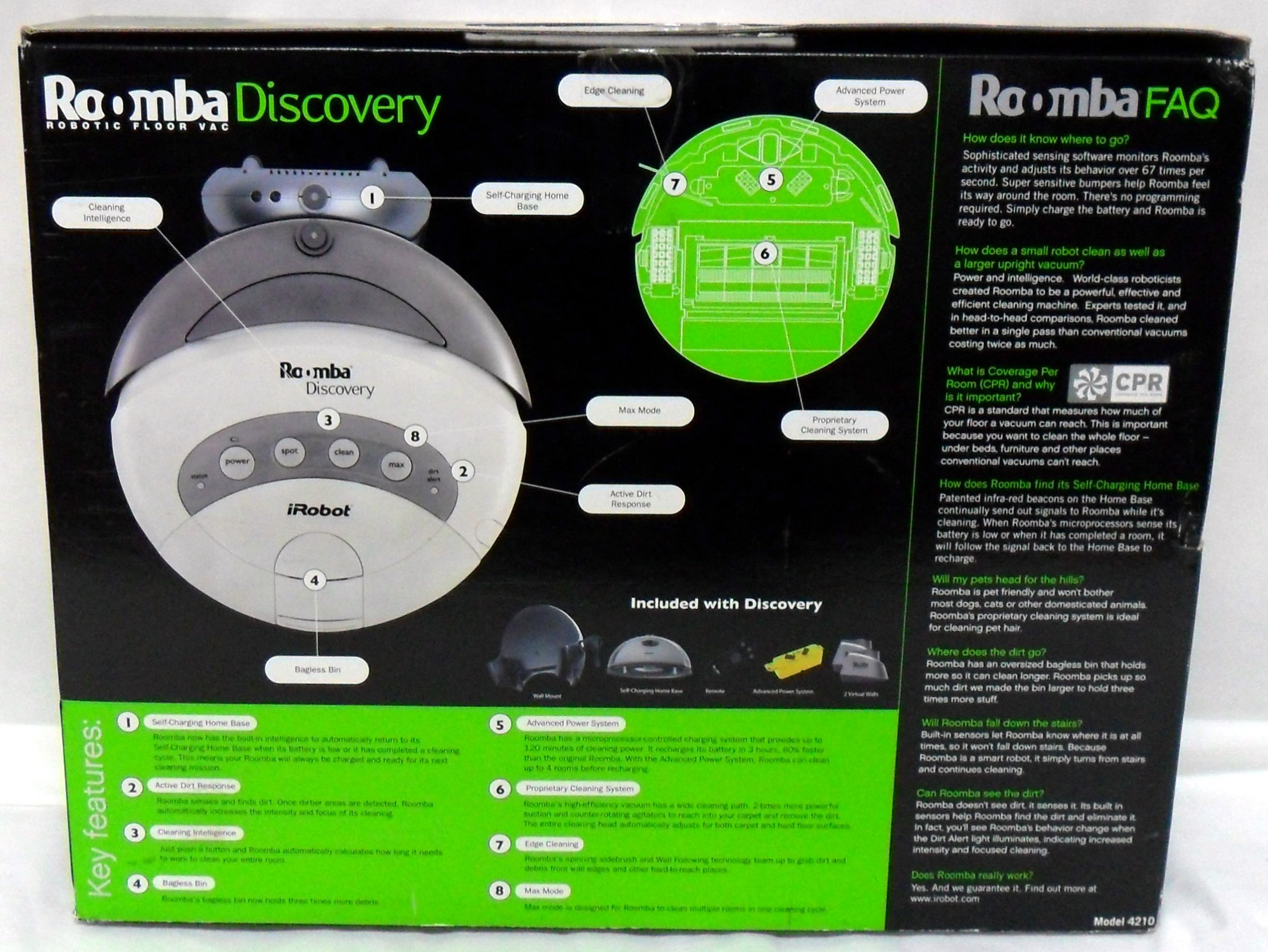How Long Do Roombas Last? Roombas typically last between two to five years, depending on usage and maintenance. With regular use and timely replacement of parts, a Roomba can potentially last up to ten years.
However, it is important to take proper care of the device to ensure its longevity. This includes regular cleaning, replacing parts when necessary, and following battery maintenance tips. While Roombas are designed to be durable, their lifespan also depends on the model and brand.
By taking proper care of your Roomba, you can maximize its lifespan and enjoy the convenience and efficiency of a robot vacuum cleaner for years to come.
The Lifespan Of Roomba
A Roomba can last for up to ten years, but this period depends on how well you take care of it. The quality of manufacturing materials used in the Roomba plays a crucial role in determining its lifespan.
Regular maintenance and timely replacement of parts are also essential factors. If you use your Roomba frequently, it might experience wear and tear at a faster rate.
However, even with regular use, if you properly maintain and replace parts when necessary, a Roomba should last between two and five years.
One of the key components that require replacement is the battery. Depending on the usage and battery maintenance, a Roomba battery may need to be replaced every few years.
Taking care of the battery and maximizing its lifespan can help prolong the overall lifespan of the Roomba.
Additionally, storing your Roomba properly when not in use and following basic operating and maintenance instructions provided by the manufacturer can also contribute to its longevity.

Credit: mobilesyrup.com
Expected Lifespan Of Roomba
The lifespan of a Roomba can vary depending on how well it is taken care of. With regular use and timely replacement of parts, a Roomba can last anywhere from two to five years. However, some Roomba models have been known to last up to ten years with proper maintenance.
The general lifespan of a Roomba typically ranges from two to five years. However, this timeframe can vary depending on various factors.
Impact of regular use and proper maintenance:
Regular use and proper maintenance can significantly extend the lifespan of your Roomba. By using it consistently and following maintenance guidelines, you can ensure that its performance remains optimal.
How long Roomba can last with care and part replacement:
With care and regular part replacement, a Roomba can potentially last even beyond the typical lifespan range. It’s important to replace worn-out parts and batteries as needed to keep the Roomba functioning effectively.
Extending The Lifespan Of Roomba
A Roomba should last between two and five years. However, if you take care of it, using it regularly and replacing parts when necessary, it can last even longer. Here are some tips to increase the longevity of your Roomba:
- Regular cleaning and maintenance: Clean your Roomba regularly to prevent dirt and debris buildup. Check and clean the brushes, filters, and sensors.
- Proper battery care and replacement: Follow the manufacturer’s guidelines for charging and storing the battery. Replace the battery as recommended.
- Cleaning schedule and usage guidelines: Use your Roomba according to the recommended cleaning schedule and avoid overusing it. Avoid using it on wet surfaces or in extreme conditions.
By following these tips, you can extend the lifespan of your Roomba and enjoy its cleaning capabilities for many years to come.
Roomba Battery Lifespan
Roombas can last between two and five years, depending on how well they are cared for and maintained. Regular use and timely replacement of parts can extend the lifespan of a Roomba.
-A Roomba should last between two and five years, depending on how well it is taken care of.
– Regular use and timely replacement of parts can extend its lifespan.
– Roomba batteries typically need to be replaced every two to three years.
– To maximize battery life, it is recommended to fully charge and discharge the battery regularly.
– Avoid storing Roomba with a fully drained battery for extended periods.
– Signs indicating the need for battery replacement include reduced runtime and decreased cleaning performance.
– Proper battery maintenance, such as cleaning the contacts and avoiding exposure to extreme temperatures, can also help prolong battery life.
Cleaning Efficiency Of Roomba
A Roomba can last for up to five years with regular use and proper maintenance. However, the lifespan of a Roomba ultimately depends on how well you take care of it. It is important to replace parts as needed and ensure battery maintenance to maximize its longevity.
The time it takes for a Roomba to clean a room varies depending on several factors. These factors include the size of the room, the amount of furniture and obstacles present, and the efficiency of the specific Roomba model. Newer Roomba models often have faster cleaning capabilities, allowing them to clean rooms more efficiently.
To maximize the cleaning efficiency of your Roomba, consider the following tips:
- Clear the room of any potential obstacles or clutter
- Regularly clean the Roomba’s brushes and filters
- Ensure the Roomba’s charging dock is easily accessible
- Use virtual walls or barriers to guide the Roomba’s cleaning path
- Follow the manufacturer’s recommended maintenance schedule
By following these tips and properly maintaining your Roomba, you can ensure that it operates at its maximum efficiency and lasts for a longer period of time.
Lifespan Of Other Robot Vacuums
Robot vacuums have gained popularity in recent years and many people are wondering about their lifespan. It is important to note that the lifespan of a robot vacuum can vary depending on the brand and how well it is taken care of.
When comparing the lifespan of Roomba with other robot vacuum brands, it is generally believed that Roombas can last between two and five years.
However, this lifespan can be extended if the vacuum is used regularly and parts are replaced when necessary.
There are several factors that can affect the longevity of a robot vacuum, such as battery maintenance and overall usage.
To prolong the lifespan of any robot vacuum, it is important to follow the manufacturer’s recommendations for battery maintenance and to store the vacuum properly when not in use.
By taking proper care of your robot vacuum, you can ensure that it lasts for many years to come.
Common Issues And Downsides Of Roombas
Roombas have become a popular choice for automated cleaning, but they do come with some common issues and downsides. One of the main challenges is their limited battery life.
Depending on the model and usage, a Roomba’s battery may need to be replaced every few years.
Additionally, while Roombas are designed to navigate and clean various areas, they may struggle to effectively clean certain areas, such as corners or tight spaces.
Another drawback of owning a Roomba is the potential issues with navigation and mapping. While Roombas are equipped with sensors and technology to map and navigate a space, they may encounter obstacles or have difficulty finding their way back to the charging dock. This can lead to incomplete cleaning or a Roomba getting stuck in a particular area.
Overall, it’s important to consider these challenges and drawbacks before investing in a Roomba.
However, with proper care, regular maintenance, and troubleshooting, many users find that Roombas can be a valuable addition to their cleaning routine.
Proper Storage Of Roomba
A Roomba can last for up to ten years if you take proper care of it. Here are some tips for storing your Roomba for the long term:
- Preparing Roomba for storage: Before storing your Roomba, ensure it is clean and free from any debris. Empty the dustbin and clean the brushes.
- Best practices to avoid damage during storage: Store your Roomba in a cool, dry place away from direct sunlight. Avoid storing it in areas with extreme temperatures or high humidity.
- Recommendations for periodic maintenance while in storage: It is recommended to charge your Roomba every few months, even during storage, to maintain the battery health. This will prevent the battery from degrading over time.
By following these storage tips, you can extend the lifespan of your Roomba and ensure optimal performance when you are ready to use it again.
Frequently Asked Questions For How Long Do Roombas Last
How Many Years Do Robot Vacuums Last?
A robot vacuum typically lasts between three and five years, but can last longer with regular care and part replacements. They are wireless and powered by a lithium-ion battery, making them convenient and easy to use.
What Is The Downside To Roombas?
The downside to Roombas is that they have a lifespan of only two to five years. However, with proper care, regular use, and replacing parts when necessary, their lifespan can be extended.
How Long Does A Roomba Typically Run?
A Roomba typically runs between two and five years with regular use and proper maintenance. The lifespan can be extended by replacing parts when necessary and taking good care of the robot vacuum cleaner.
Do Roomba Batteries Wear Out?
Yes, Roomba batteries can wear out over time. The lifespan of a Roomba battery typically lasts between two and five years, depending on the usage and care. It is important to regularly maintain the battery and replace it when necessary to ensure optimal performance.
Conclusion
To ensure the longevity of your Roomba, proper care and maintenance are essential. While a Roomba can last between two and five years, it ultimately depends on how well you take care of it. Regularly replace worn-out parts and follow battery maintenance tips to maximize its lifespan.
With proper care, your Roomba can even last up to ten years. So, invest in your Roomba’s maintenance and enjoy its efficient cleaning for years to come.

